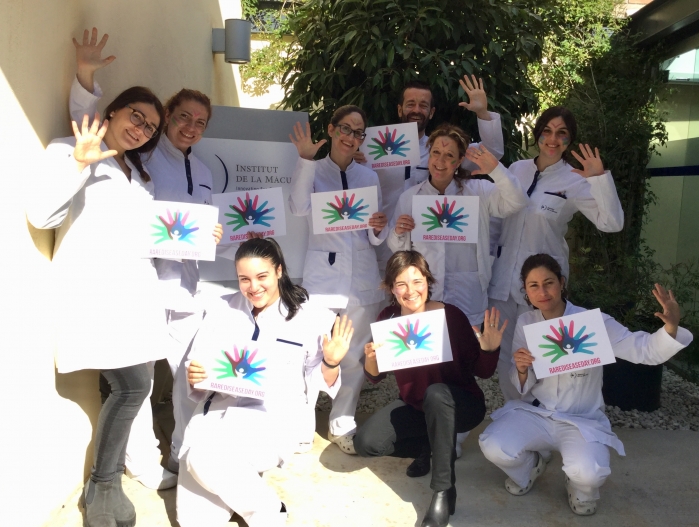The Barcelona Macula Foundation participates in World Rare Disease Day and continues researching into Stargardt’s disease and Retinitis Pigmentosa

For another year, the Barcelona Macula Foundation (BMF) is participating in World Rare Disease Day, whose main aim is to sensitise, educate and inform the public about these pathologies and position them as one of the principal public health problems. At present, there are 7,000 rare diseases in the world and these affect over 300 million people. According to figures from the Catalan Rare Diseases Federation (FECAMM), there are over 400,000 sufferers in Catalonia.
The Barcelona Macula Foundation’s support for World Rare Disease Day can be explained through its involvement in the research of two pathologies considered to be rare: retinitis pigmentosa and Stargardt’s disease, which respectively affect one in every 2,000 people and one in every 1,000. It is currently leading, in close cooperation with the Institut de la Màcula, an international trial aimed at testing a new drug to help halt the progression of Stargardt’s disease.
This year’s international campaign, which has the slogan “Bridging health and social care”, highlights the need to improve access to the different services that provide support for patients. It stresses the importance of greater coordination between all the health, social and community services in order to make these services really effective and accessible to sufferers. As such, it raises the need for all those professionals attending to these people from different areas to do so in a coordinated manner. In addition, it emphasises the impact on daily life and the difficulties that those affected and their relatives must overcome each day, either through their need to receive daily care, to access the various support services or to attend to their work, studies or family environment.
Jorge Mariño, an engineer who is participating in the trial conducted by the Barcelona Macula Foundation on Stargardt’s disease, tells us: “if I’m at the airport and I can’t read the boards to find out my departure gate, I take a photo. To see my phone, I enlarge the letters”.
According to the first Europe-wide survey conducted by Rare Barometer on support services and daily life, eight out of every ten patients find it difficult to perform their daily tasks. As a result, most treatments are usually coordinated by those with a rare disease and their relatives, who invest a great amount of time organising their care. According to the survey, 70% of patients and carers confirm that this work takes up a lot of their time.
Helena Vidal, another participant in the Barcelona Macula Foundation trial, highlights the importance of the family: “Patience and understanding are vital for us to feel that we are not a burden on anyone. I am grateful to my parents and my partner who are always there to help me when I’m in difficulty”.
At the Barcelona Macula Foundation, we remain committed to finding a solution for these vision-affecting rare diseases. As a consequence, we continue to collaborate with other research centres around the world that share the same aim. We also promote activities that publicise and raise awareness of the difficulties and challenges sufferers are forced to overcome.